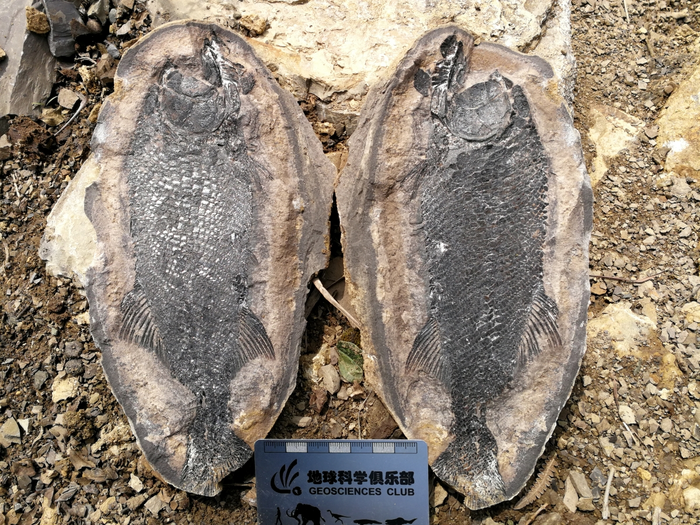About 250 million years ago, the Permian-Triassic mass extinction killed over 80 per cent of the planet’s species. In the aftermath, scientists believe that life on earth was dominated by simple species for up to 10 million years before more complex ecosystems could evolve. Now this longstanding theory is being challenged by a team of international researchers – including scientists from McGill University and Université du Québec à Montréal.

Credit: Xu Dai
About 250 million years ago, the Permian-Triassic mass extinction killed over 80 per cent of the planet’s species. In the aftermath, scientists believe that life on earth was dominated by simple species for up to 10 million years before more complex ecosystems could evolve. Now this longstanding theory is being challenged by a team of international researchers – including scientists from McGill University and Université du Québec à Montréal.
A fossilized ocean ecosystem
Until now, scientists have long theorized that scorching hot ocean conditions resulting from catastrophic climate change prevented the development of complex life after the mass extinction. This idea is based on geochemical evidence of ocean conditions at the time. Now the discovery of fossils dating back 250.8 million years near the Guizhou region of China suggests that complex ecosystems were present on Earth just one million years after the Permian-Triassic mass extinction, which is much earlier than previously thought.
“The fossils of the Guizhou region reveal an ocean ecosystem with diverse species making up a complex food chain that includes plant life, boney fish, ray-finned fish, crabs, lobsters, shrimp, and molluscs. In all, our team discovered 12 classes of organisms and even found fossilised faeces, revealing clues about the diets of these ancient animals,” says Morgann Perrot, a former postdoctoral researcher at McGill University, now at Université du Québec à Montréal.
Challenging an age-old theory
Previously, it was thought that complex ecosystem would need five to ten million years to evolve after an extinction. However, the researchers found that the specimens in the Guizhou region evolved much quicker than that by using radiometric dating to date the rocks where the fossils were discovered.
“All of this has implications for our understanding of how quickly life can respond to extreme crises. It also necessitates a re-evaluation of early Triassic ocean conditions,” says Perrot, whose research focuses on earth sciences and geochronology.
About the study
“A Mesozoic fossil lagerstätte from 250.8 million years ago shows a modern-type marine ecosystem” by Xu Dai, Joshua Davies, Zhiwei Yuan, Arnaud Brayard, Maria Ovtcharova, Guanghui Xu, Xiaokang Liu, Christopher Smith, Carrie Schweitzer, Mingtao Li, Morgann Perrot, Shouyi Jiang, Luyi Miao, Yiran Cao, Jia Yan, Ruoyu Bai, Fengyu Wang, Wei Guo, Huyue Song, Li Tian, Jacopo Dal Corso, Yuting Liu, Daoliang Chu, and Haijun Song was published in Science.
Journal
Science
DOI
10.1126/science.adf1622
Method of Research
Observational study
Subject of Research
Animals
Article Title
A Mesozoic fossil lagerstätte from 250.8 million years ago shows a modern-type marine ecosystem
Article Publication Date
9-Feb-2023




